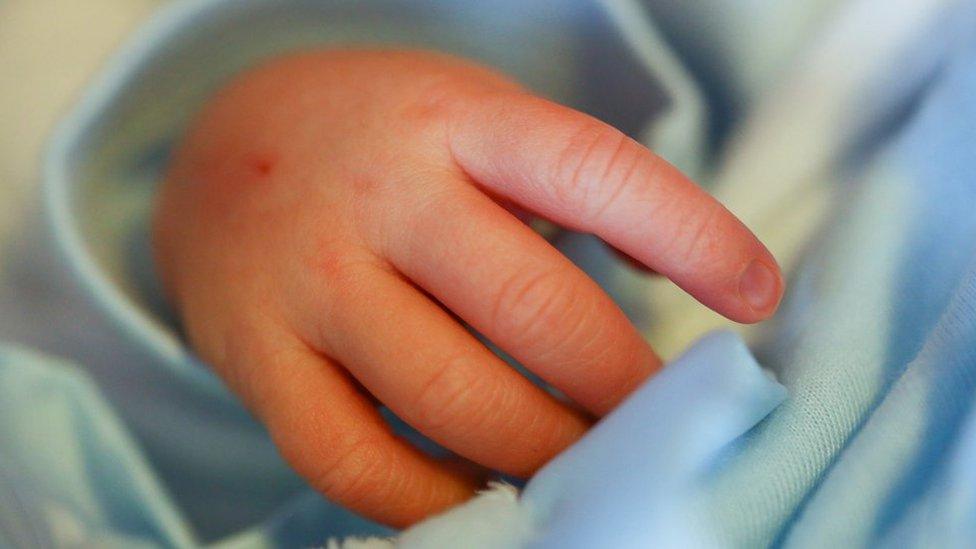Crosshouse baby deaths report criticises staff shortages at hospital
- Published
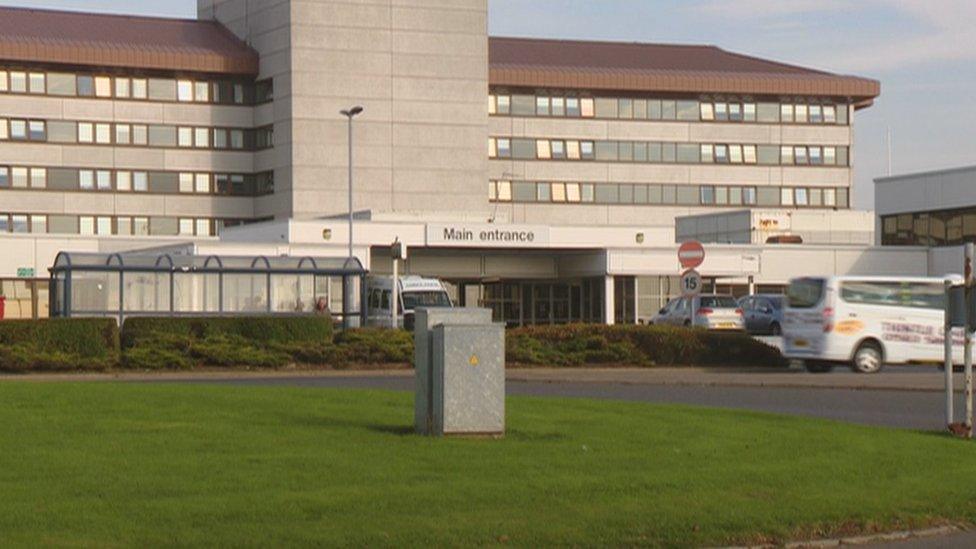
Six cases of so-called "avoidable deaths" have taken place at Crosshouse Hospital over the past eight years
A government-commissioned report into the "unnecessary" deaths of six babies at Crosshouse Hospital highlights concerns about staff shortages impacting on patient care.
It calls for improvements in training for maternity staff across the country.
The report also criticises NHS Ayrshire and Arran for the way it has handled significant adverse events.
The review followed a BBC investigation which revealed a number of babies had died at the Kilmarnock hospital.
NHS Ayrshire and Arran Health Board has apologised to the families involved.
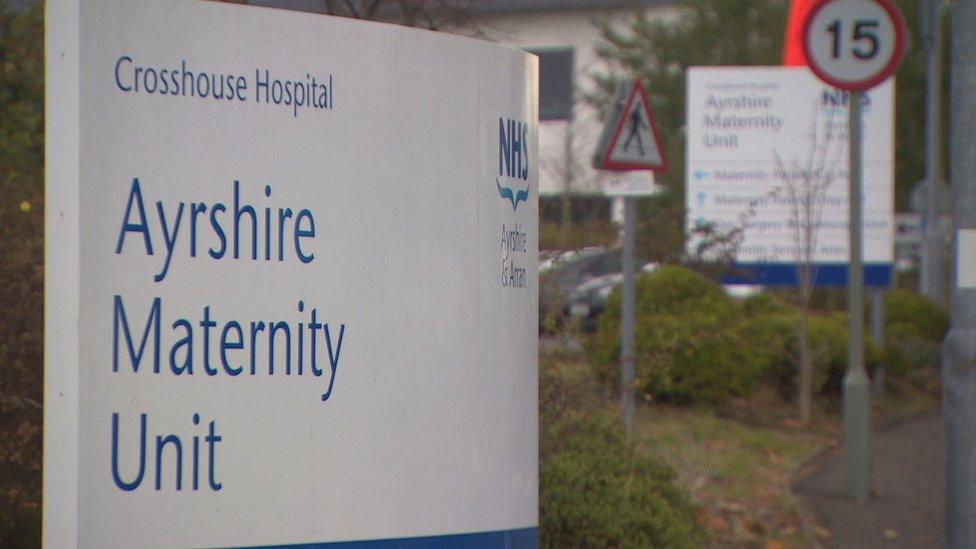
The health board said it had already moved to improve staffing levels
In a statement on Tuesday, the health board said it had "already seen a 50% reduction in our crude stillbirth rate from 7.5 per 1,000 in 2013 to 3.2 per 1,000 in 2016".
It added that it had "invested significantly in additional maternity staffing". This included £1m in midwifery staffing, one whole time equivalent (WTE) consultant obstetrician and one WTE clinical risk midwife.
The board said it was pleased that the HIS review team heard directly from staff "of a working environment where there was a clear commitment to an open and transparent culture where adverse events are routinely reported".
Health Secretary Shona Robison announced last year that an investigation would be carried out by Healthcare Improvement Scotland (HIS).
Following publication of the review, Ms Robison told Holyrood she wanted to extend her personal and sincere apologies to the families affected.
'Sub-standard practices'
She said: "I have made it very clear to the board that I view the sub-standard practices uncovered in these reports as unacceptable.
"NHS Ayrshire and Arran has apologised to the families and offered to meet and discuss their cases in person.
"The board has also today published a set of action plans to implement the (report's) recommendations. This includes plans to appoint a risk and quality improvement team for maternity services, comprising senior maternity staff, to support the changes required in the action plans.
"I welcome this response from NHS Ayrshire and Arran and have been clear with the vice-chair that I expect the plans to be implemented and evidence of improvements to be published."
Ms Robison also said HIS would be monitoring the implementation of recommendations at the board on a three-monthly basis.
She added: "It's very important that we reassure people, especially expectant mothers, about the overall safety of our maternity services. Our rates of stillbirth and neonatal death continue to decline."
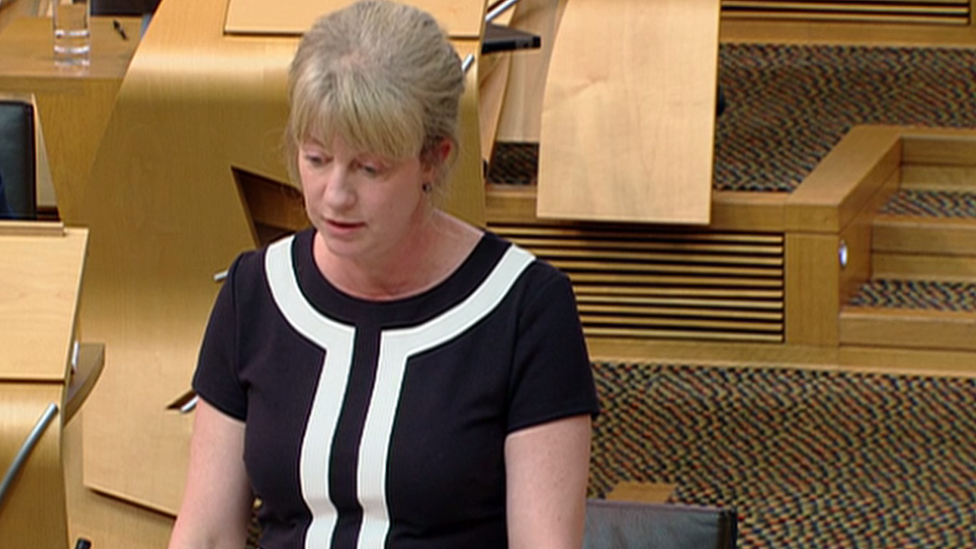
Health Secretary Shona Robison said three-monthly reviews of the board will now be carried out
The report praises staff at the hospital for their professionalism.
It also highlights the courage of families who spoke to the review team about their experiences of Crosshouse.
But it goes on to raise local and national concerns about staffing, and refers to an internal health board report.
It reveals that in March 2017 a senior manager in Ayrshire and Arran said: "The impact of all sickness, absence and maternity leave is contributing to our ability to deal effectively with day to day workload and provide effective and safe care for women, children and neonate.
"These rates are also impacting on our ability to release staff for training.
"We are not achieving the desired 2% and the potential cumulative risk of this is that staff will not be trained to the standard to provide assurance of the quality of care being delivered."
'Recruitment problem'
The report says that NHS Ayrshire and Arran has since increased its maternity staffing but highlights that, across Scotland, there are problems in maternity recruitment.
In total, 16 families contacted the review team and nine agreed to meet with them.
The report says that of those nine, three fell into the "timescale of the review's terms of reference".
It says that all nine families perceived there had been failings in care which were exacerbated by poor communication.
The report also calls for much better engagement with bereaved parents.
It makes clear that there will always be babies who die because of underlying conditions, but says an "avoidable" death is a term used if a death could have been prevented with different care.

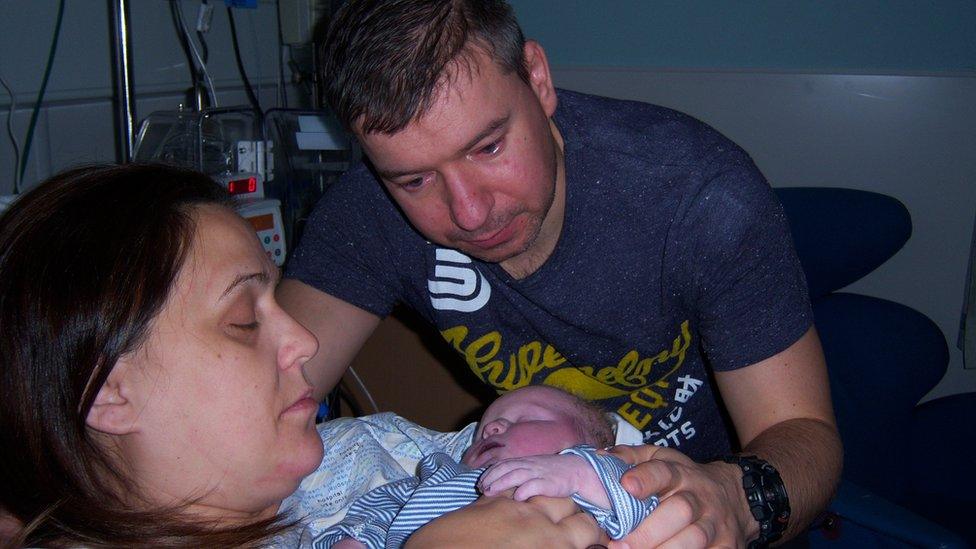
Baby Lucas Morton, pictured with his parents June and Fraser, died after a series of staff failures
'The families were ignored'
The bereaved families include June and Fraser Morton from Kilmarnock, who have called for a public inquiry into the deaths.
Their son Lucas died at the hospital in November 2015 after a series of failings by hospital staff, who did not diagnose pre-eclampsia or properly monitor the baby's heartbeat during childbirth.
The board ultimately apologised and said Lucas' death was "unnecessary". Mr and Mrs Morton were told that there was a 30% staff absence rate on the night of Lucas' death.
Fraser Morton told the BBC: "Let's be absolutely clear, this review was not commissioned after concerns were raised by families. Our concerns and that of other families were ignored and it was only after the BBC published a report that the cabinet secretary felt compelled to act.
"It would appear that despite being investigated by HIS in 2012 NHS, Ayrshire and Arran's maternity unit took a unilateral decision to circumvent their new SAER policy as they deemed it to be deficient - a policy which was approved by Healthcare Improvement Scotland.
"This was not picked up by either the board, senior management or by subsequent follow-up reviews by HIS.
'Cover-up claims'
"As well as causing a great deal of stress and confusion, this decision by the maternity unit effectively removed their investigative process from any form of internal or external scrutiny and left them wide open, understandably, to claims of cover-ups."
He added: "However, we are pleased that the issue of inadequate staffing was raised by this review. We are in no doubt that low staffing levels were a contributory factor in Lucas' death as well as the knock-on affect these low levels have on staff's ability to attend training such as the CTG multi-disciplinary sessions, as outlined by their own guidelines which were effectively cancelled in all but name."
- Published19 June 2017
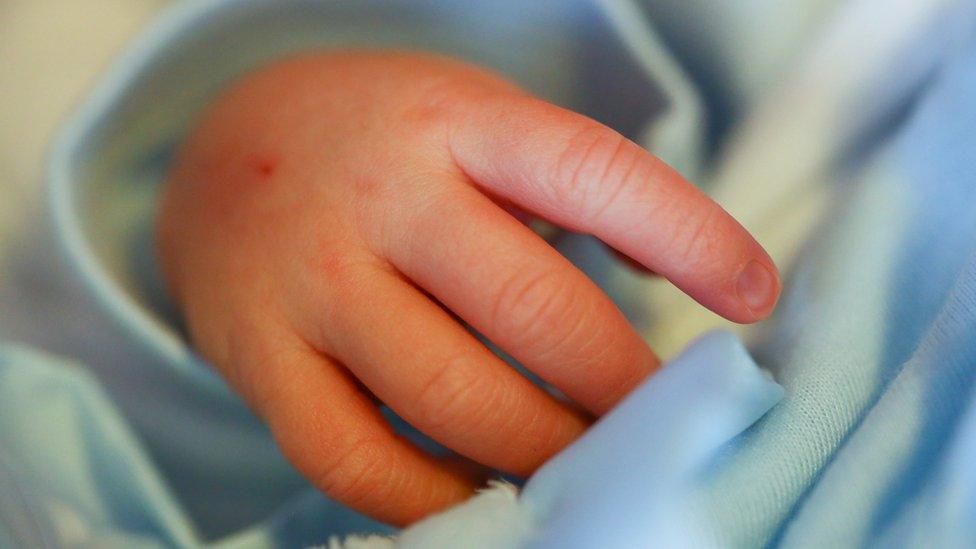
- Published12 June 2017
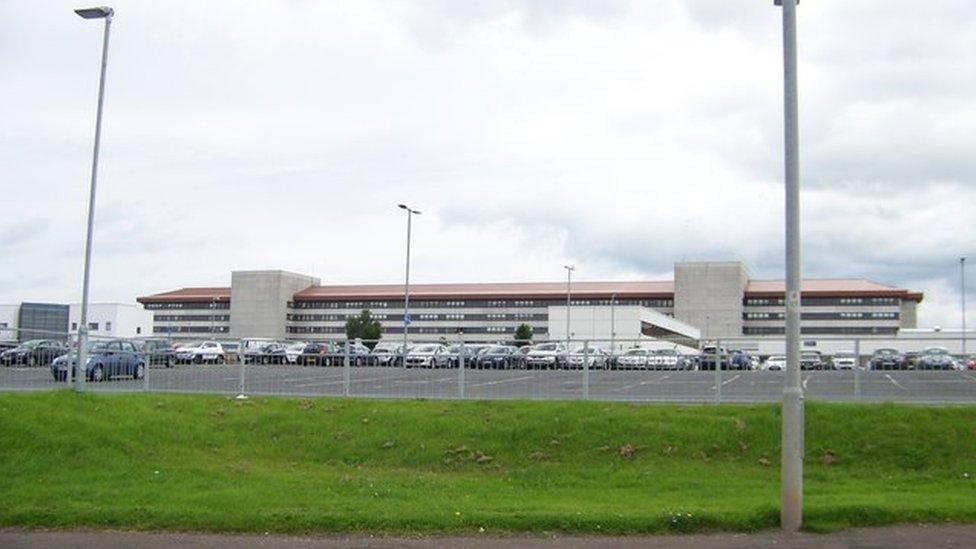
- Published15 March 2017

- Published22 November 2016
